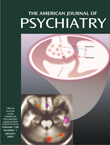Medical Illness, Past Depression, and Present Depression: A Predictive Triad for In-Hospital Mortality
Abstract
OBJECTIVE: The authors’ objectives were to determine 1) whether major depressive disorder diagnosed according to DSM-IV criteria modified for the medically ill predicted in-hospital mortality better than major depressive disorder diagnosed according to inclusive DSM-IV criteria and 2) whether a history of depression and current depression predicted mortality independent of severity of physical illness. METHOD: Of 392 consecutive medical inpatients, 241 were interviewed within the first 3 days of admission and 151 were excluded from the study. Chart review and a clinical interview that included the Schedule for Affective Disorders and Schizophrenia were used to determine demographic variables, past psychiatric history, psychiatric diagnoses, and illness measures. Diagnoses included major depressive disorder and minor depression diagnosed according to DSM-IV criteria that included all symptoms regardless of etiology and according to criteria modified for the medically ill (hopelessness, depression, or anhedonia were used as the qualifying affective symptoms; depressive symptoms were eliminated if easily explained by medical illness, treatments, or hospitalization). The Charlson combined age-comorbidity index was used to measure severity of illness. RESULTS: A diagnosis of major depressive disorder based on criteria modified for patients with medical illness better predicted mortality than a diagnosis based on inclusive criteria. A past history of depression and the Charlson combined age-comorbidity index predicted in-hospital mortality, but demographic variables, pain, discomfort, length of stay, medical diagnoses, and minor depression did not. In the final multivariate logistic regression model, the Charlson combined age-comorbidity index, a modified diagnosis of major depressive disorder, and a history of depression were independent predictors of in-hospital death. CONCLUSIONS: Severity of medical illness, a diagnosis of major depressive disorder based on modified criteria, and a past history of depression independently predicted in-hospital mortality in medical inpatients.



